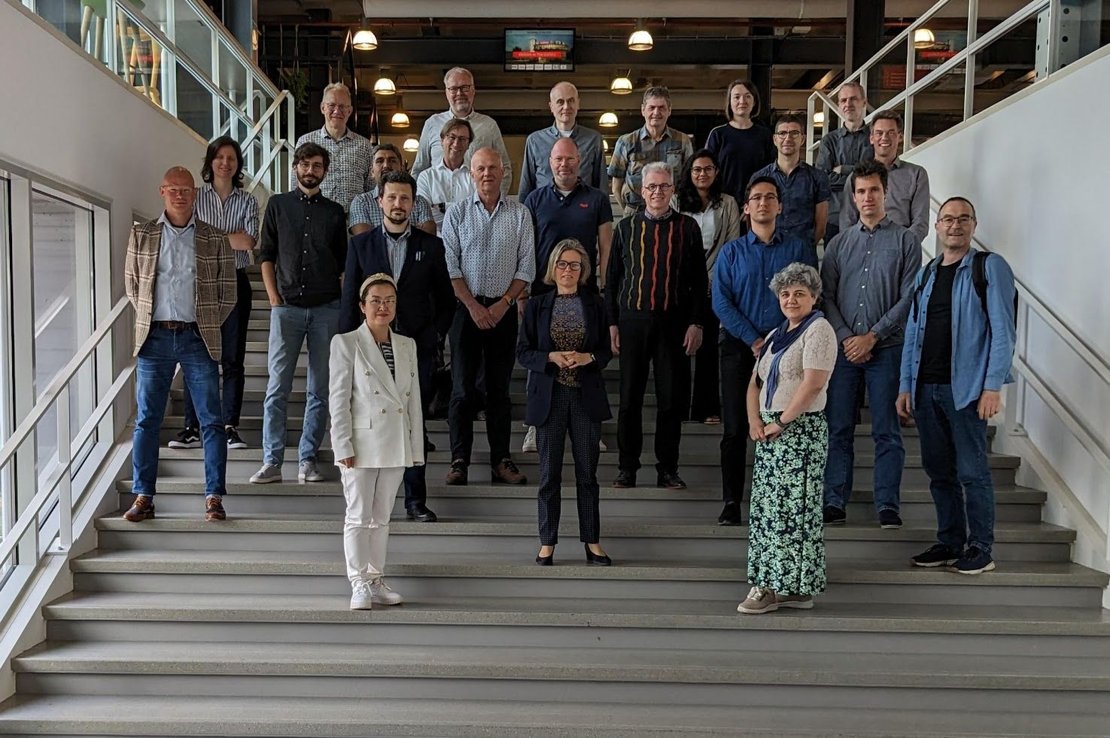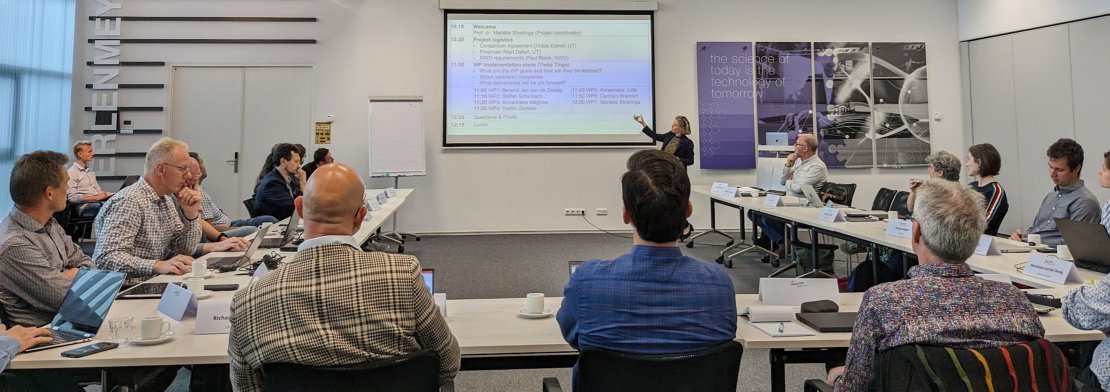Failures. We all suffer from them: payment apps that don't work, websites that are down, or software that doesn't cooperate. Often just irritating, but for businesses, downtime is a huge cost whose bill can run into millions. Some outages can spread like an oil slick: We saw this in the Flevoland power failure, for example: due to a fuse not working, a short circuit could occur. Subsequently, a fire occurred, trains did not run, and locks could not function.
To prevent such problems, the University of Twente, Saxion University of Applied Sciences, TNO-ESI and VU University Amsterdam are working on using artificial intelligence to better predict and prevent outages. They have received a three million euro research grant for the project ZORRO (Engineering for Zero Downtime in Cyber-Physical Systems via Intelligent Diagnostic). The kick-off of the project took place yesterday.

"Intelligent diagnostics is an active research area; where several research projects are ongoing ZORRO is unique because we focus on the system as a whole, rather than individual components," explains Mariëlle Stoelinga, professor of Risk Management for High-tech systems at the University of Twente. "This makes it complex: within a system, the components have all kinds of complex interactions and dependencies. To develop diagnostics for that, that is. The challenge. For example, we want to develop efficient monitoring systems through smart combinations of sensors. Another work package in the project focuses on linking domain knowledge to data-driven algorithms. For this, we develop new diagnostic models and integrate them into the development path for high-tech systems."
ZORRO
The ZORRO project works on diagnostic methods for high-tech systems, such as MRI scanners and printers. By continuously monitoring their behaviour with appropriate sensors, AI algorithms can detect anomalous patterns in the sensor signals, and relate these to their root causes. Appropriate measures, such as replacement or repair, can then be taken in time to prevent failures.
Co-project leader Carmen Bratosin of TNO-ESI: "This multi-company programme gives us confidence in wide applicability. It enables us to accelerate our efforts to realise ESI's diagnostics roadmap for the high-tech industry."

More recent news
 Wed 18 Feb 2026Master's in Geo-information Science and Earth Observation recognised as an initial Master's
Wed 18 Feb 2026Master's in Geo-information Science and Earth Observation recognised as an initial Master's Wed 18 Feb 2026Prototype 'digital twin' helps Enschede better predict groundwater
Wed 18 Feb 2026Prototype 'digital twin' helps Enschede better predict groundwater Fri 13 Feb 2026UT nominations for Science Award
Fri 13 Feb 2026UT nominations for Science Award Thu 12 Feb 2026Drones accelerate and improve humanitarian aid delivery during disasters
Thu 12 Feb 2026Drones accelerate and improve humanitarian aid delivery during disasters Thu 12 Feb 2026UT Professor Frederic Schuller elected to the Academy for Excellence in Higher Education
Thu 12 Feb 2026UT Professor Frederic Schuller elected to the Academy for Excellence in Higher Education
